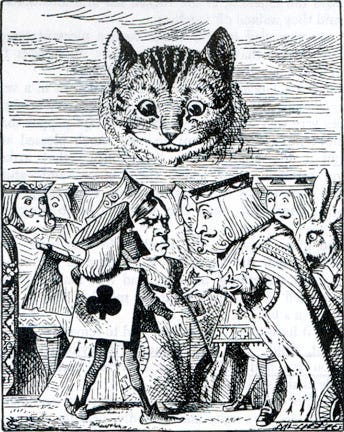Welcome to Whimsical Wanderings! I wanted there to be a place in this mad, mad world for a little relief from all the ranting and raving, to provide something interesting and fun to read, especially midweek when you might need a lift.
These wanderings will take a random word, thought, even sometimes an obituary, and I’ll follow it wherever it leads. I did this in a book called Some People Are Dead, which was all riffing off an obit and leading to a surprising and often delightful point. Would these work, I wondered? The reviews told me they did. Here is a sampling of the Amazon reviews, posted here so you’ll know what’s in store:
“I’m not sure how one would classify the genre of this book. There really aren’t any like it. Perhaps the closest is the Meditations of Marcus Aurelius. I’ve reread this book a couple of times ... I find it to be a book that I can turn to just for a moment of decompression, and often for an insight that allows me to see one of my own challenges from a new perspective.”
“I read this in the hospital while recovering from surgery! Like a professor who seems to ramble and then pulls everything together into something profound, there is wisdom in this book. Life lessons, humor, quiet observations, smiles.”
“The wit of Vonnegut with a faithful thread of joy running through it. It had me laughing and crying in spots.”
“Bell's essays are prompted by obituaries, but then he ruminates on other subjects and people, bringing the story back to the beginning. I loved following those tales and seeing where they led.”
You’re getting this because you’ve supported my work in the past, and I am so appreciative of that! If you’d like to continue that you can opt for paid, which will include additional content…like a podcast that’s in the works.
Enough intro. Here’s Wandering #1:
I open the dictionary at random and find this word: Epithelium.
This is a word I was not familiar with, or with which I was not familiar (for classic grammarians out there) so I read the definition, to wit: A membranous tissue composed of one or more layers of cells which forms the covering of most internal and external surfaces of the body and its organs. Which, it seems to me, makes epithelia pretty important, sort of like clothes if you’re going in for a job interview, in which case it’s best to have clothes on covering most of your internal and external surfaces.
There used to be a saying, “Clothes make the man,” which was a way of stating that how a man dresses in the sphere of business has something to do with increasing the odds of his success. Why is there no analogue for women, i.e., “Clothes make the woman,” when a nicely dressed woman is just as important in the realm of business as a man, and it is the women who have fashion shows and models walking the runway, doing what is called a “catwalk” which is not an easy thing to do as there are several parts of the body to get right, like shoulders (back), hips (forward), face (relaxed), feet (straight line), kidneys (in place), and membranous tissue covering all organs?
And as far as women’s clothing goes, I miss the era of women’s hats and milliners (those who practice millinery, which is the making of women’s hats, so called because a trade in fine hats arose in the city of Milan in the Middle Ages because the place was the hub of the world’s textile and fashion trade. Those who made hats for men were called merely “hatters,” not very original, which no doubt drove some of them mad).
When you watch movies from the 1930s and 40s, you’ll see a lot of women’s hats, and then on episodic TV from the 1950s, like Perry Mason, where a woman testifying in court would often wear a hat.
The whole era of hats started to come to an end with the election of John Fitzgerald Kennedy as President of the United States. He went outside without a hat, unlike his predecessor Dwight David Eisenhower, and because JFK was young and vibrant, as opposed to DDE, who was more like your golfing grandfather, men who wanted to appear young and vibrant started not wearing hats (I’m talking real hats here, fedoras with wide brims, not baseball caps, and certainly not baseball caps worn backwards) and though JFK’s wife, Jackie, often wore a hat, and the Queen of England always wore a hat, the women’s hat industry also began to decline, and the era of hippies arose, where women just let their hair grow down and straight. No more trips to the “beauty parlor” as they put it in those days.
And I ask you to consider with me whether or not society is better off without hats. Are we more civil to each other? Is there more or less order in our cities? You see, when Jack Webb as Joe Friday wore fedoras in the 1950s Dragnet TV show, law and order were pretty much in place. When the show came back in the 60s, Joe Friday was hatless, and where has that gotten us? Have you been to Los Angeles lately? All that to say, membranous tissue is a crucial covering for our internal organs, and hats may well be a crucial covering for our heads, and perhaps we’d better think all that through again.
“Without hats there is no civilization.” - Christian Dior
“In that direction,” the Cat said, waving its right paw round, “lives a Hatter: and in that direction,” waving the other paw, “lives a March Hare. Visit either you like: they’re both mad.”
“But I don’t want to go among mad people,” Alice remarked.
“Oh, you can’t help that,” said the Cat: “we’re all mad here. I’m mad. You’re mad.”
“How do you know I’m mad?” said Alice.
“You must be,” said the Cat, “or you wouldn’t have come here.”
—Lewis Carroll, Alice's Adventures in Wonderland




James Scott Bell is a top author. My wife and I enjoy all his articles and books, fiction and nonfiction. "Writing from the Middle" has helped me rethink and structure my stories as an aspiring novelist. Plus, my wife and I agree with Mr. Bell's assessments and thoughts on society.
Dear James, what a pleasure to find you here in Substack! I love your article and you made me laugh more than once. I look forward to the next one, and the next, and the next.